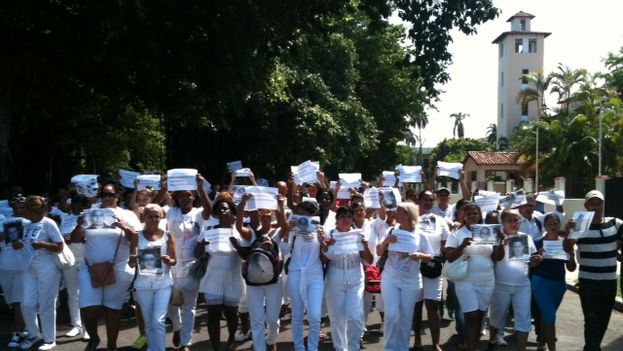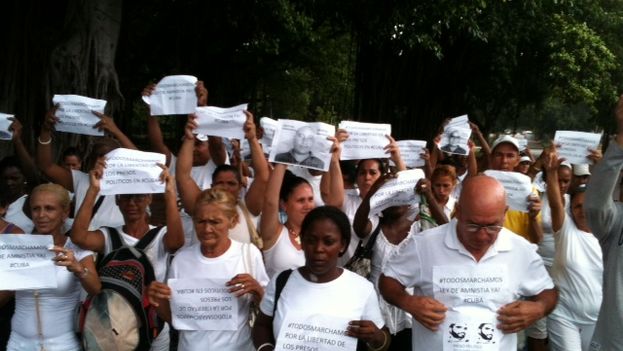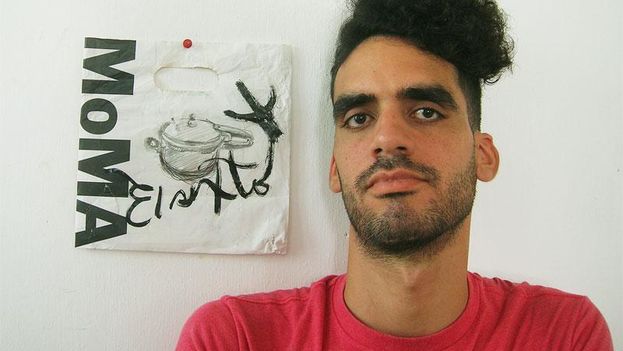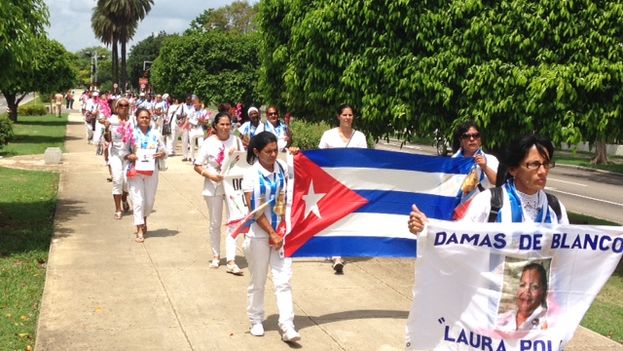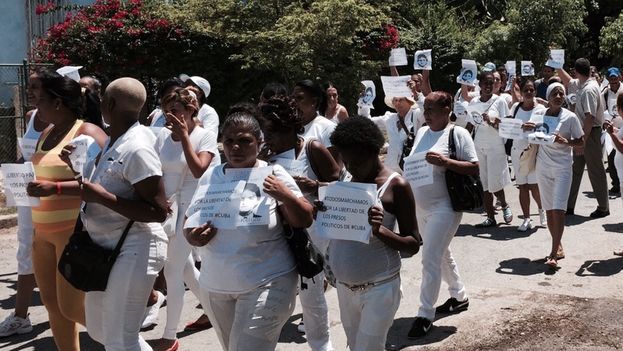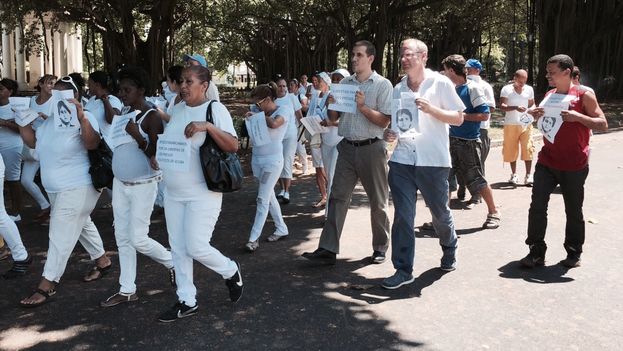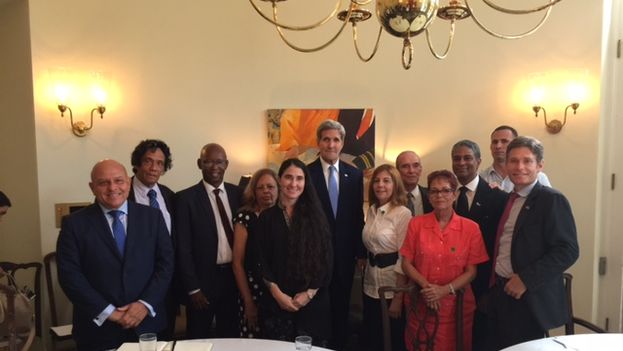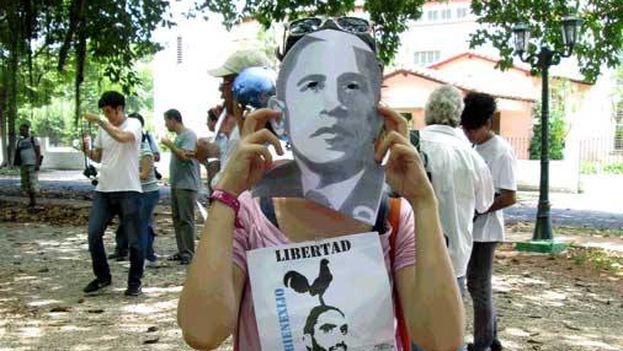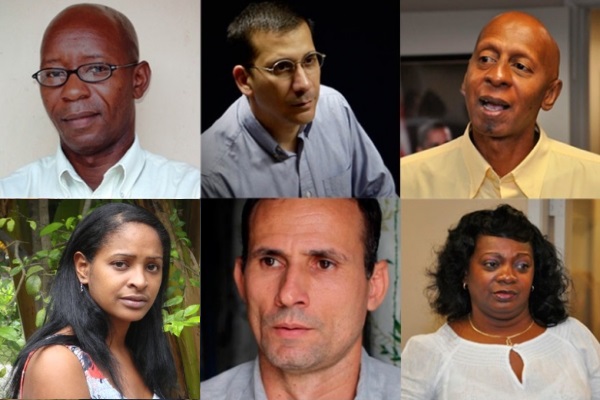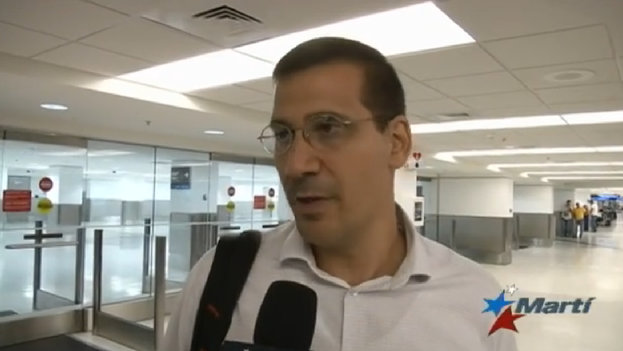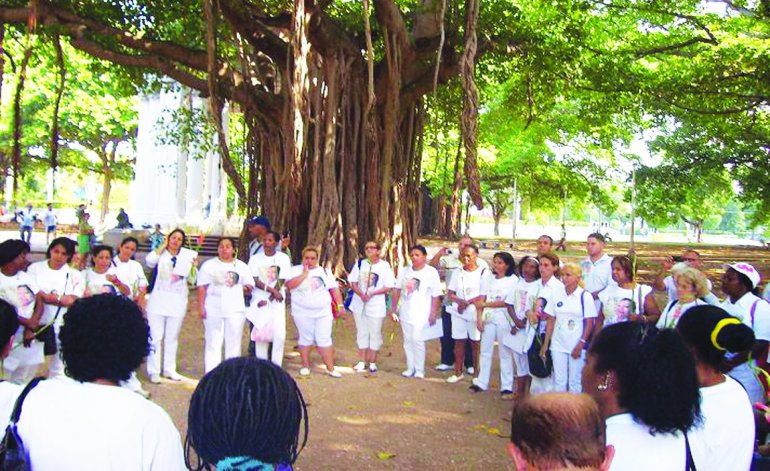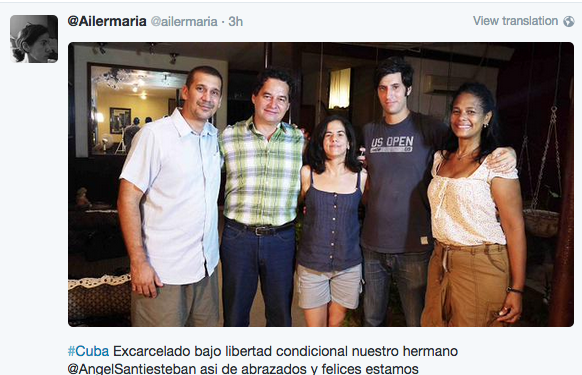The absence of a structured political opposition leaves civil society activism very vulnerable to the impact of Raul’s reforms. When opposition activity is reduced to a package of demands to the current government, any change undertaken by the regime could exceed the expectations of the dissidence itself. The dissidence, for example, was not prepared to assume to the challenges of the lifting of the travel restrictions, while the effect for the government was a revitalization of its impoverished symbolic capital.
It is a fact that ordinary Cubans are more radical in their anti-Castro convictions than a good part of the so-called opposition. And it is at least curious that from the side of the opposition they are asking for reforms in a system that bases its politics in the reforms of its model (of socialism). The paradox is solved when we realize that the logic of reformism is compatible with the dissidence, but not with the political opposition.
The other crushing blow came from the hand of President Obama. A good part of the dissidence and activists were left outside the umbrella of the American government, now interested in those who unconditionally support the process of normalization.
A major campaign is being conducted – inside and outside of Cuba – to sell the bi-tonal (black/white) scheme of what is taking place. It would seem there are no nuances; whomever does not support the Obama pact, Castro places automatically on the side of the extremism and violence associated with the construct of the extreme-right-reactionary-bloodthirsty-living-in-the-past.
This biased and misleading way of labeling does not recognize the current that defends normalization, but with conditions. Rather, it puts in the same sack a broad spectrum of those it considers hostile to both governments, from the activists of Estado de Sats to those of the Miami exile group Vigilia Mambisa.
The hardcore, instead, pass themselves off as open people with a string of virtues: inclusion, spirit of dialog, pacifism and a long et cetera. In short, they see themselves as what sells, what is in fashion and in tune with the current times. This posture, which bears fruit inside and outside of the country, shows no interest in ordinary Cubans.
Their concern is focused on the environment of relations between the Cuban and the United States governments, so they are only interested defending – moderated through the interior of Cuba and extreme pressure groups, such as Cuban Americans for Engagement (CAFE) – dialog with the Cuban regime, masked under the innocuous idea of non-confrontation. And it is clear that when there is talk of conditions, from the other side of the opposition spectrum, it is about dialog and rapprochement in general between the governments of Cuba and the United States and not about the classic and sterile demands of the Cuban government before 17 December, which do not transcend the logic of reformism and would have to abandon taking concrete steps in the physical space, for the same reason that they haven’t worked in all the years of the dictatorship.
My question, then – in accord with the premise offered by President Obama – is: if what doesn’t work is changed, why don’t the hardcore supporters of normalization take to the streets to support, at least, the marches of the Ladies in White? If the majority of the Cuban people are anti-Castro and the weak side of the opposition knows that it has been incommunicado vis-à-vis ordinary Cubans, why not go discretely house-to-house to prepare people for a referendum? These are true opposition actions that do not require funds or immolations.
What is the danger, in short, of reformism? That comes from delimiting a front in which the frontiers between the ruling party, the dissidence and the trusted opposition are increasingly erased? In this scenario, the real opposition turns out to be an obstacle.
The light at the end of the tunnel
It is obvious that rulers who adopt the totalitarian model do so with the express purpose of staying in power indefinitely. If this happens in a country like Cuba the chances of regime change, even in the long term are minimal. There is a cultural issue, in this case, which takes its toll. Personally, I am convinced that if Einstein was resurrected and was standing on a corner in Havana, inside of five minutes he would have in front of him a couple of individuals explaining the theory of relativity. These types – in the unlikely event they would allow the genius to discuss the matter – would end up reproaching him with the argument that “you don’t know shit about physics.”
Then comes the issue of the bodeguita, as a friend of mine defines it: in the face of any suggestion of collaboration, if it’s a question of survival it’s every man for himself. One can imagine how difficult it is to unite the dissidence, activists and opposition around an objective that transcends the expectations of a guild. But, even if we make an abstraction of the anthropological-cultural theme, the principal obstacle would stand: are you interested in the validation of a democratic regime, or in democratizing the current regime? Whatever your option you will achieve nothing without dismantling the one-party system. Therefore, consensus – if it were possible – should not be built on the basis of reformist objectives.
In any event, since 17 December things are becoming ever more clear and it will have to be defined on what bases a lobbying in favor of unconditional dialog with the dictatorship and a resistance interaction with ordinary Cubans enter into the extension of the concept of opposition. In the year 2011 – having recently gone into exile – I came to the defense of Estado de Sats before some accusations of Marta Beatriz Roque branding the projects as dissidence-light, and pondered the logic of the traditional opposition, rooted in ideas of heroism and the barricade. The beatings they gave us was the weighty argument that the venerable opposition wielded against us.
Since then, each in his own way, we have been radicalized. I, who thought more as a dissident, now do so from the angle of the opposition. And I don’t know about the ironies of destiny, only that the issue of Cuba is a GPS constantly being relocated: today Antonio Rodiles, leader of Estado de Sats, is the one who receives the beatings and not a few of the old guard opposition look away when the Ladies in White begin their march every Sunday.
Personally, I believe that the conditions are given. Access to public spaces, to the street, is there in front of everyone. It is not a chimera, it is not impossible. If you are an opponent marching with these untamed women you protect the space that they were able to conquer for all of us. Sacred space, because it is the only thing we really have and the only thing that puts the dictatorship in check. If you are an opponent looking to connect with the people, you go house to house – as the Jehovah Witnesses have done in much more difficult times – with the purpose of making every Cuban see the need to put an end to the one-party system through a popular referendum. If you are an opponent you work to give a voice to the people, the ordinary Cuban.
The combination of these three factors could be the unity of purpose sought by the opposition in the diversity of its ways, namely: support, through one’s physical presence, of the Sunday marches, the individual and systematic contact – face-to-face – with the people in the neighborhoods, the blocks and the homes to get them to vote NO to the hegemony of the Cuban Communist Party in the popular vote of 2016; the consequent need for the people to decide how and by whom they should be governed through a plebiscite. This line and its media support is what, in my opinion, defines the opposition camp in Cuba after the moves of 17 December. The rest is also necessary, but not necessarily opposition. Ergo, if this embassy that will soon open in Havana limits its contacts to the reformist scene, then we will know – at least with regards to the issue of Cuba – who is the boss in Washington.

Alexis Jardines Chacon
Jardines has a degree in Philosophy from Saint Petersburg State University (Russia) with specialization in History of Philosophy. He holds an MA in Philosophy from the same University and a Ph.D. from the University of Havana, an institution where he taught for more than 15 years and where he attained the highest category as a professor. In 2011 he went into exile in Puerto Rico and works as Professor Lecturer at the University of Puerto Rico, Rio Piedras campus. Distinguished Scholar in Residence. Cuban Research Institute, FIU.
*Translator’s note: Desmerengamiento was coined by Fidel Castro to embody, in a single word, the debacle of the Soviet Union. It comes from the word “meringue” and, like a failed meringue, refers to the idea of a complete collapse.
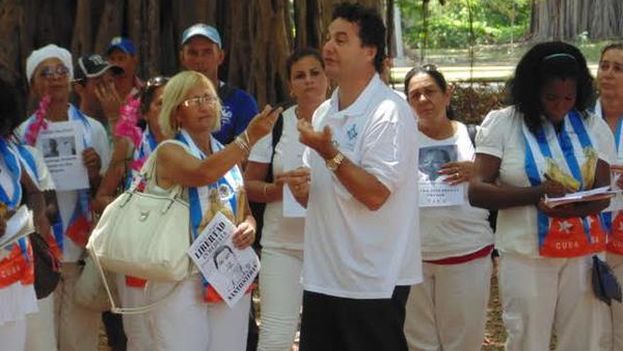
![]() 14ymedio, Havana, 4 November 2015 — The writer Angel Santiesteban was arrested on Wednesday afternoon in Havana. A police car drove the activist from Antonio Gonzalez Rodiles’s house, where he was, to a police station, according to Santiesteban himself who spoke to this newspaper at the time of his arrest.
14ymedio, Havana, 4 November 2015 — The writer Angel Santiesteban was arrested on Wednesday afternoon in Havana. A police car drove the activist from Antonio Gonzalez Rodiles’s house, where he was, to a police station, according to Santiesteban himself who spoke to this newspaper at the time of his arrest.
